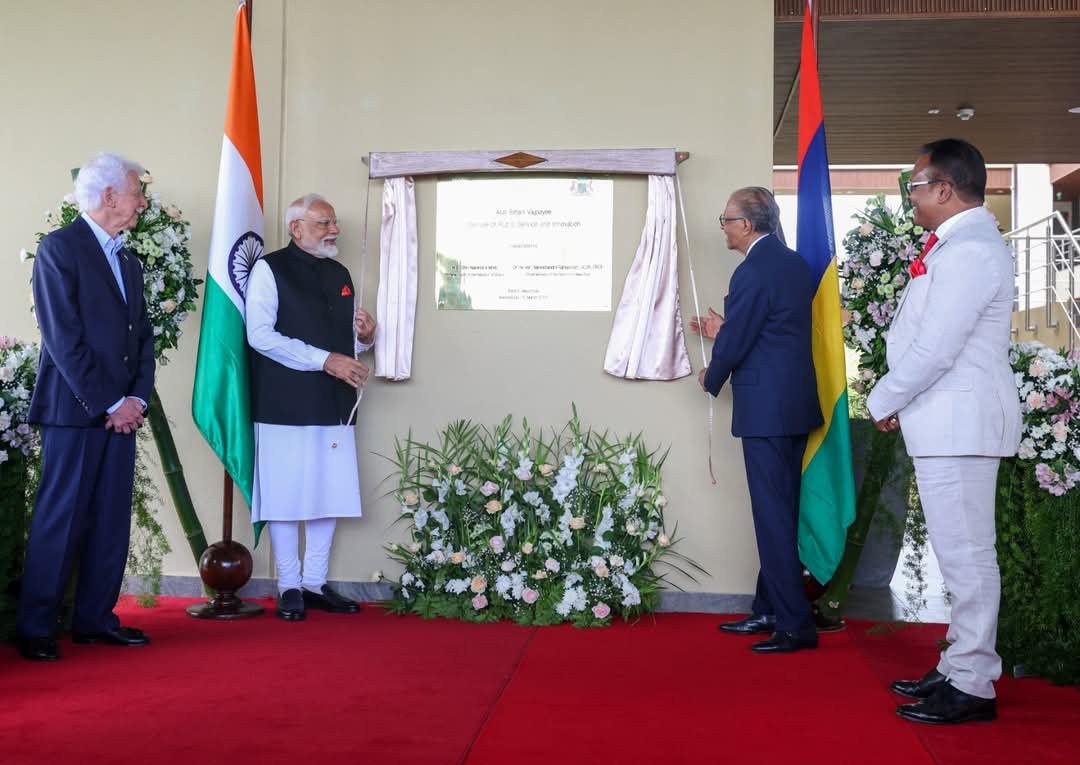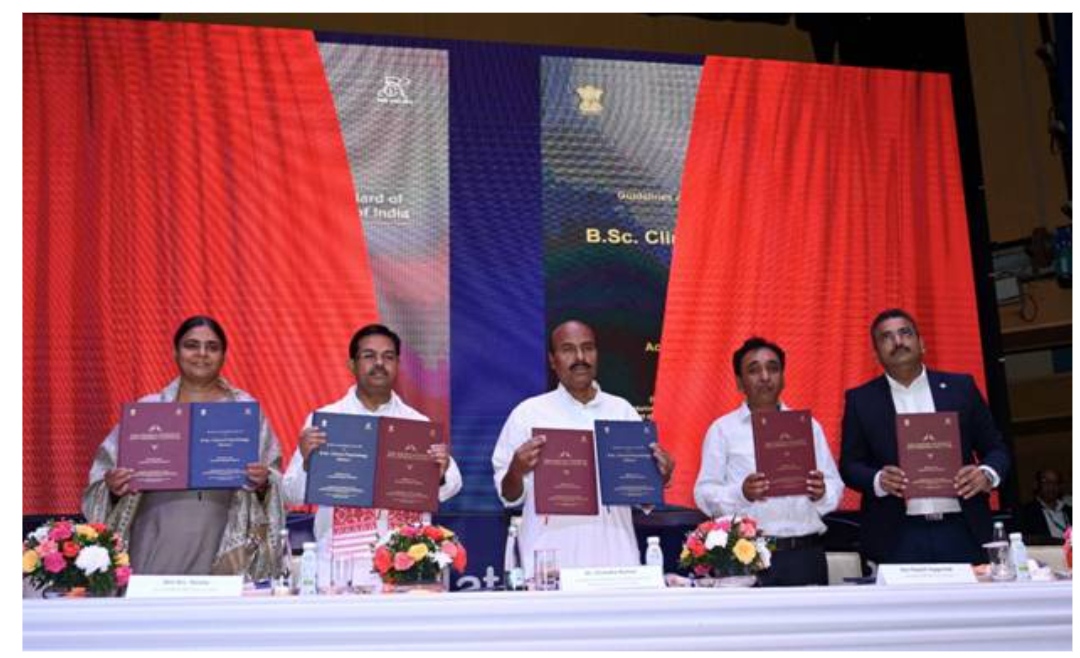India-Mauritius Strengthen Strategic Partnership with Comprehensive Bilateral Initiatives.
New Delhi:
During a State Visit to Mauritius from March 11 to 12, 2025, Prime Minister Narendra Modi and Prime Minister Navinchandra Ramgoolam engaged in comprehensive discussions aimed at enhancing the longstanding bilateral relations between India and Mauritius. Their talks centered around expanding the existing cooperation and transforming it into a deeper, more robust Strategic Partnership.
Reaffirming a Unique Relationship
The two leaders underscored the special, unique ties between the two nations, built on shared history, culture, language, and values. The bilateral relationship, enriched by people-to-people exchanges and cultural ties, has evolved into a Comprehensive Strategic Partnership. This partnership now covers various sectors, benefiting both nations and the broader Indian Ocean Region.
Prime Minister Ramgoolam acknowledged India’s role as a steadfast partner in Mauritius’ socio-economic development and reiterated Mauritius’ commitment to further strengthening their collaboration. Prime Minister Modi, recalling his 2015 visit when India’s Vision SAGAR (Security and Growth for All in the Region) was launched, emphasized the crucial role Mauritius plays in India’s regional and global strategies. Both leaders agreed on the need to guide their relationship towards an enhanced Strategic Partnership.
Key Areas of Cooperation
- Political and Parliamentary Engagements: Both leaders agreed to deepen political exchanges and enhance parliamentary cooperation, particularly in sharing best practices for parliamentary proceedings and strengthening capacity-building efforts. Their discussions also included expanding bilateral engagements under India’s G20 Presidency.
- Development Partnership: India has been a key partner in Mauritius’ development since its independence. Several landmark projects, such as the Metro Express, New Supreme Court Building, and social housing units, have been completed with Indian assistance. The leaders committed to further projects, including electric buses, the second phase of High Impact Community Development Projects (HICDP), and the construction of a new Parliament building in Mauritius. They also pledged to continue supporting disaster relief efforts and infrastructure development in Agalega.
- Human Resource Development and Capacity Building: India reaffirmed its commitment to building Mauritius’ human resource capabilities. Plans were made to implement training programs for Mauritian civil servants, diplomats, and other officials in various domains, including governance, law enforcement, and health.
- Space and Climate Change Cooperation: The two leaders discussed enhancing cooperation in space and climate change. India is helping Mauritius develop its own satellite, and the leaders agreed to expand cooperation on climate forecasting systems and disaster preparedness, leveraging India’s expertise in these fields.
- Health and Education: Both leaders emphasized cooperation in the health and education sectors. India has supported Mauritius in setting up health infrastructure and educational initiatives, such as the Jan Aushadhi Kendras and an AYUSH Centre of Excellence. They also agreed to share expertise in drug de-addiction, digital health systems, and curriculum development.
- Economic and Trade Relations: The signing of the Comprehensive Economic Cooperation and Partnership Agreement (CECPA) marked a milestone in trade relations. Both leaders agreed to deepen trade, explore local currency settlements, and expand cooperation in sectors such as ocean economy, IT, and fintech.
- Digital Cooperation: The leaders agreed to support Mauritius in its digitization efforts by implementing systems such as e-judiciary and digitized public records. India will also assist Mauritius in enhancing its cybersecurity and ICT infrastructure.
- Defence and Maritime Security: Defence and maritime security continue to be cornerstones of bilateral relations. India will continue to assist Mauritius in safeguarding its Exclusive Economic Zone (EEZ), with expanded cooperation in maritime surveillance, hydrographic surveys, and capacity building for Mauritius’ security forces.
- Regional and Multilateral Cooperation: The two leaders committed to advancing regional cooperation under frameworks like the Indian Ocean Rim Association (IORA) and Colombo Security Conclave. They also reaffirmed India’s support for Mauritius on the Chagos Islands issue.
- Cultural and People-to-People Ties: The leaders recognized the importance of cultural exchanges, particularly through initiatives that celebrate the shared heritage of both nations. They agreed to enhance tourism, strengthen diaspora engagement, and cooperate on preserving historical records related to indentured laborers from India.
A Bright Future Ahead
Both leaders concluded their discussions by expressing satisfaction over the progress made in deepening their bilateral ties. They committed to turning their partnership into an enhanced Strategic Partnership that will not only cater to Mauritius’ developmental needs but also contribute to shared regional and global objectives.
Prime Minister Modi invited Prime Minister Ramgoolam to visit India, further solidifying the special relationship between the two nations. This visit is set to pave the way for continued growth in political, economic, and cultural cooperation, ensuring that India and Mauritius remain steadfast partners in the years to come.



